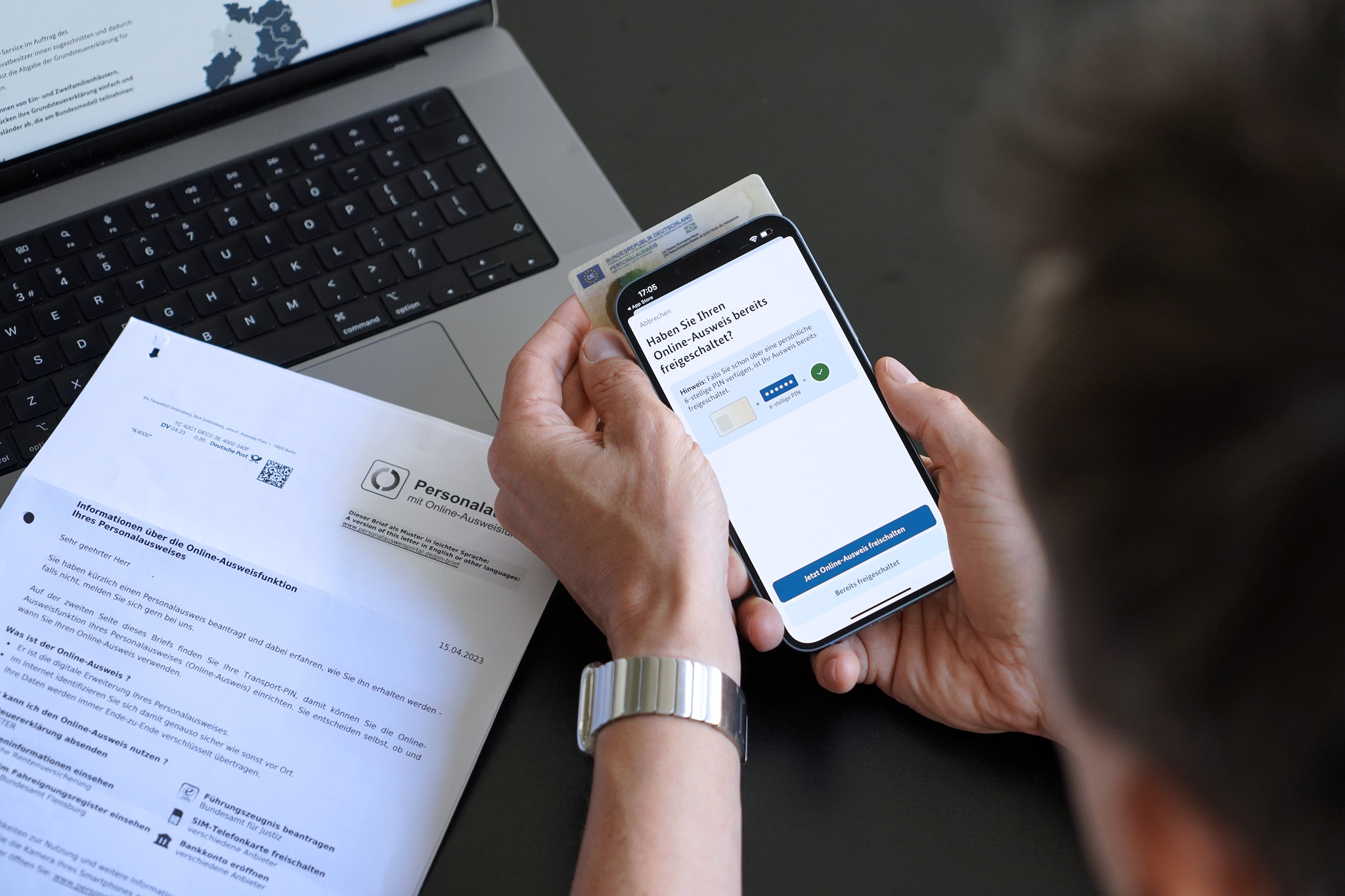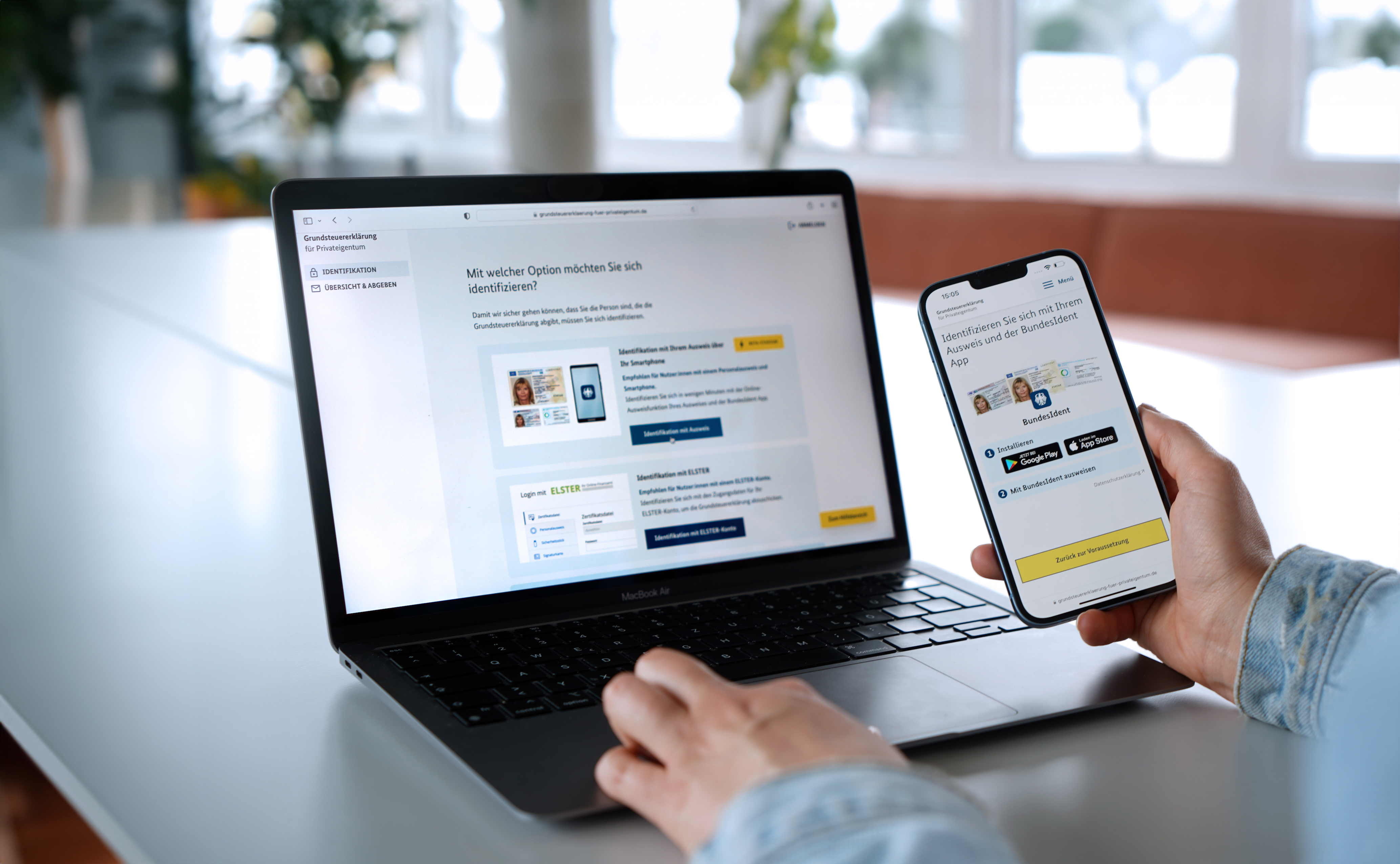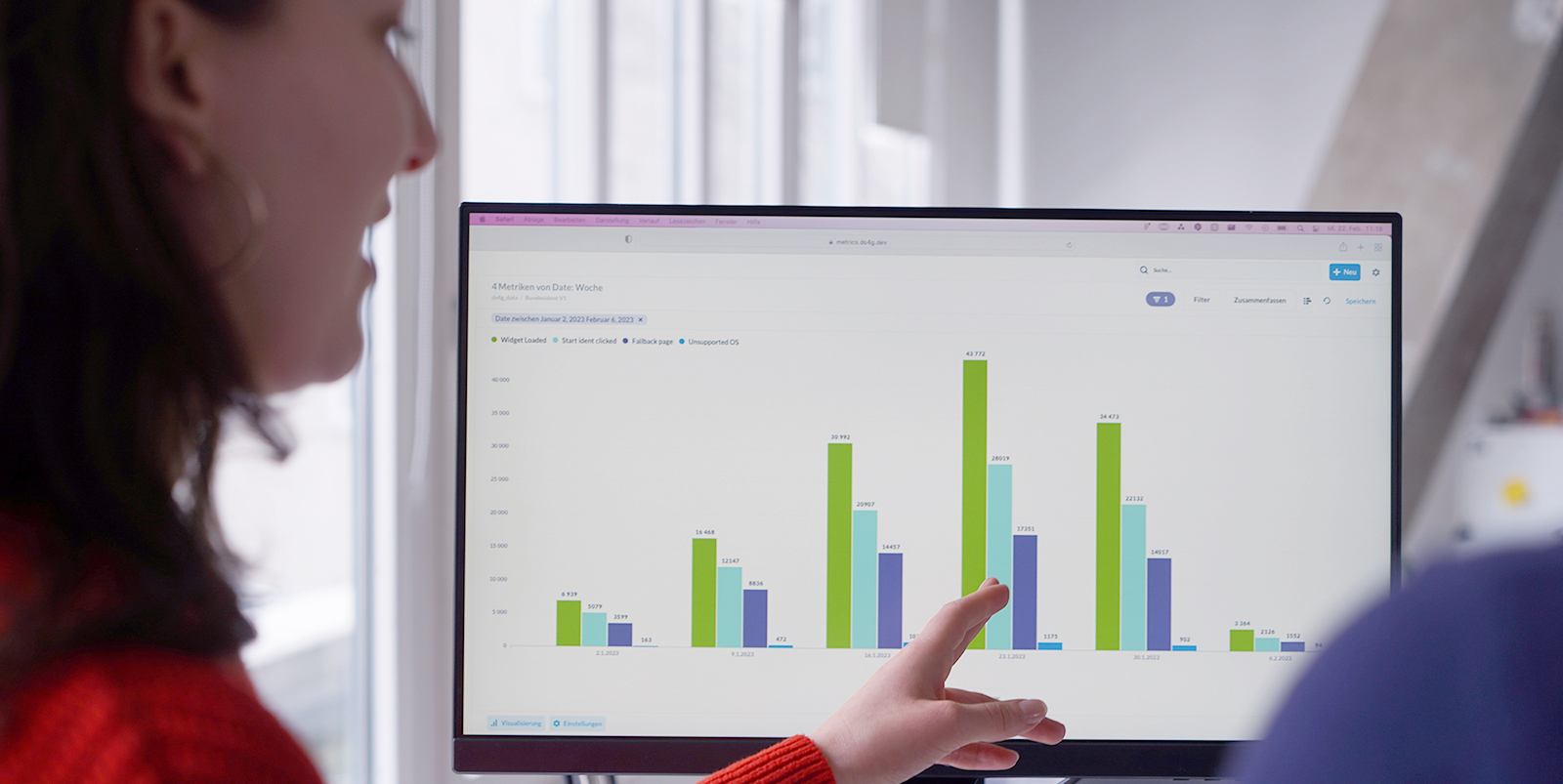

BundesIdent
How can a breakthrough in use of the online ID function be achieved?
By now, some 62 million German citizens have an electronic personal ID (nPA) with online ID function (eID), which was introduced in 2010. But even though the online ID function is so widespread, it is still used less in Germany than in other countries.
The goal of our “Digital Identities” umbrella project with the German Federal Ministry of the Interior(BMI) was to refine the government-provided digital identity into a widespread and popular solution, thereby helping to boost the usage rates of online administrative services. Following an extensive and meticulous research phase, we developed BundesIdent, an identification service with three components: a user-centric and intuitive app, an easily integrated web widget for mobile apps, and a website where technical information was made publicly accessible and available for use.
Development of BundesIdent did not continue after the pilot phase, but our findings are going into the further overall project.
Special features
- Exhaustive research: synthesis of existing analyses, supplemented by our own surveys on user perspective
- Easily integrated Web widget for mobile apps
- Intuitive in-app setup and identification process
- Modern design, trustworthy branding
- Iterative development based on real-world usage data
Facts and figures

Six months until the go-live date for the minimum viable product (MVP)

Beta version of BundesIdent as an identification option for property tax returns for private property (> 30,000 identifications)

App downloaded more than 80,000 times during pilot phase
Read more about this project




